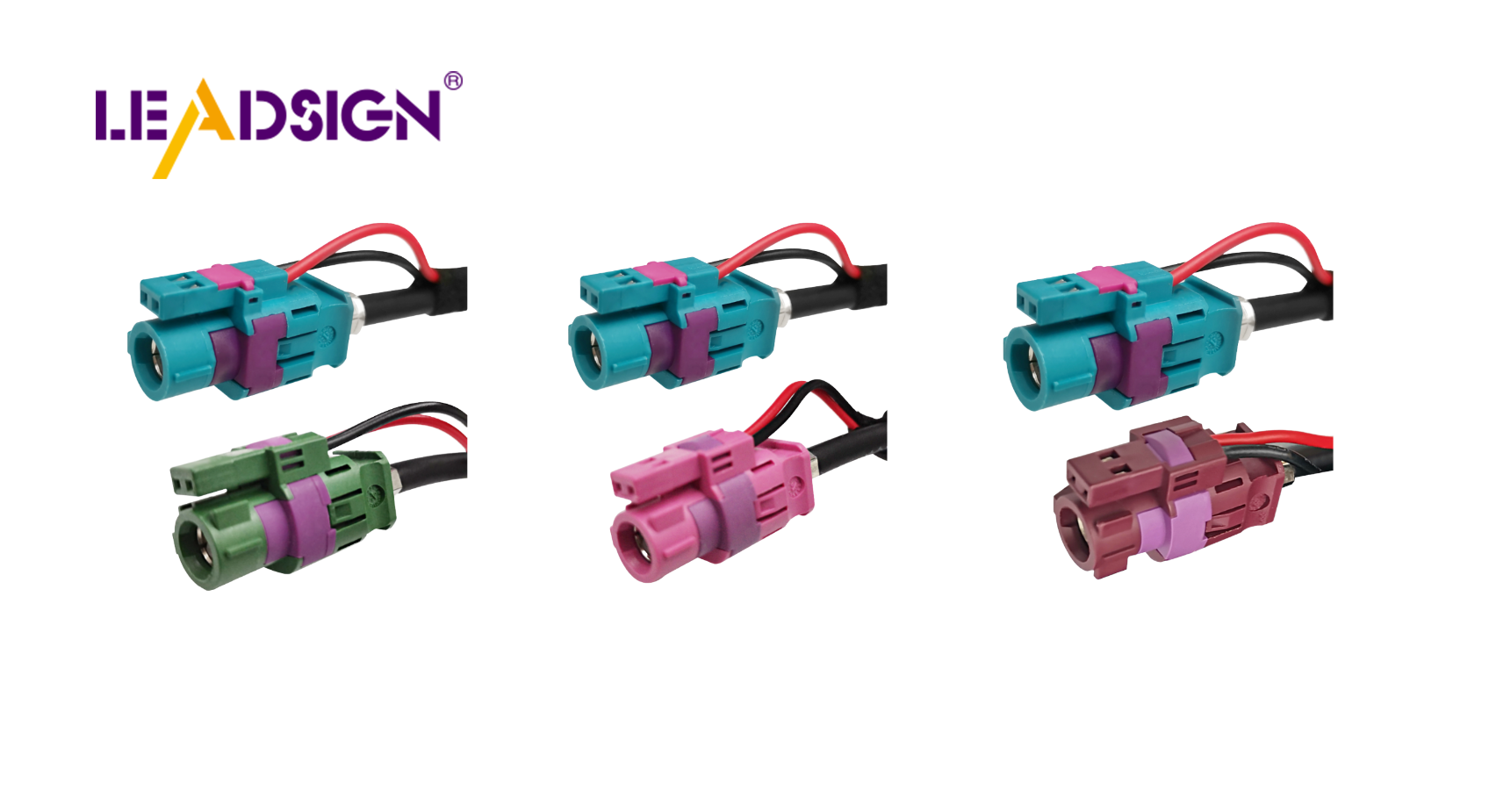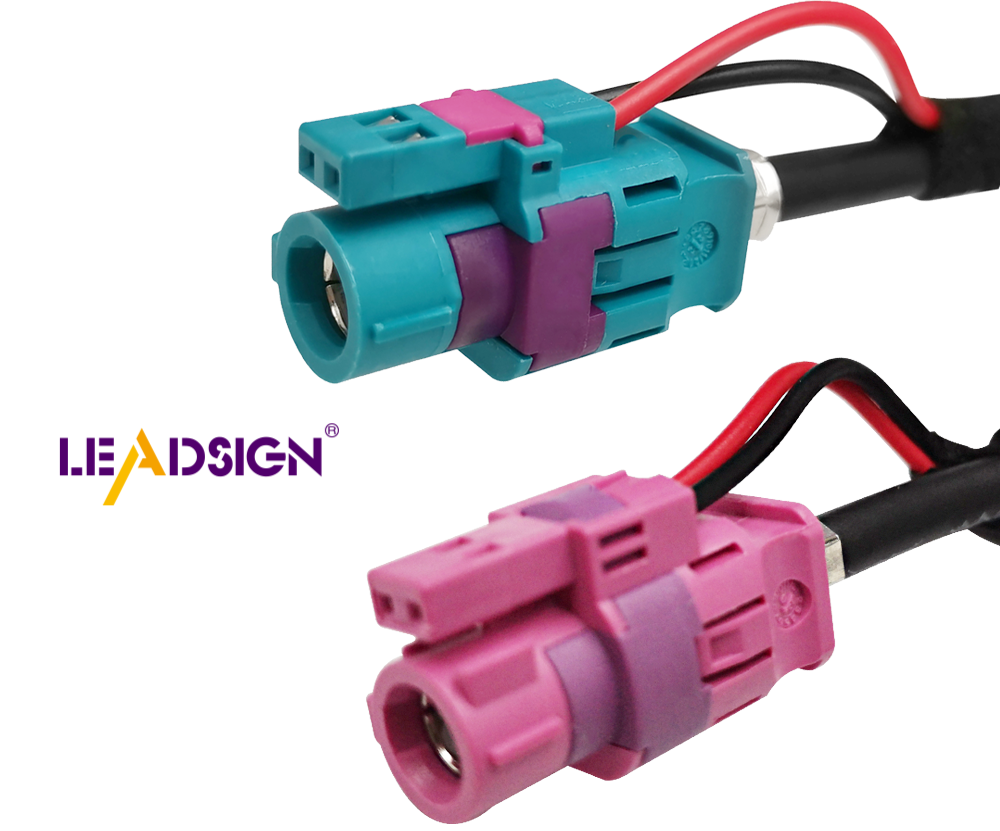Exploring the Types of Vehicle Cable with Custom Cable Maker

Vehicle cables are very important in today's cars. They help connect parts and share power, which is key for how vehicles work and stay safe. About 70% of new cars use advanced data cables. Picking the right vehicle cable is very important. Choosing the wrong one can cause electrical problems or fires. Knowing the main types of vehicle cables helps you choose wisely. This keeps your car working well and safely.
Key Takeaways
Understanding the different types of vehicle cables—such as sensor, battery, and data cables—is crucial for ensuring your car operates safely and efficiently.
Choosing the right wire thickness is essential; thicker wires can carry more electricity without overheating, which is vital for components like battery cables.
The insulation material of cables matters significantly; materials like XLPE are better suited for high-heat areas, ensuring durability and safety.
Grounding wires play a key role in vehicle safety by directing excess electricity away from sensitive components, preventing damage and noise interference.
Using shielded and coaxial cables can enhance signal clarity in advanced systems like music and driver assistance, making your driving experience safer and more enjoyable.
Always adhere to safety regulations when selecting vehicle cables to prevent electrical issues and ensure long-lasting performance.
Consulting with cable experts can provide tailored solutions for specific needs, especially for complex setups like trailers.
Overview of Vehicle Cables
What They Are and What They Do
Vehicle cables are very important in cars today. They connect different parts of the car. This helps them talk to each other and share power. These cables send electricity to things like lights, air conditioning, and steering. Without them, car parts wouldn't work right.
Sensor Cables: These help with electronic parts like ABS and EPS. They are important in the engine area. More people want them because of cameras in cars.
Battery Cables: These strong cables link the battery to the car's starter. They give the power needed to start the engine.
Automotive Data Cables: These send power to many car devices. They are used in music systems, driving aids, and engine systems.
Why They Matter in Cars
Car cables are needed for cars to work well. They make sure electricity goes to all parts, keeping the car safe and working. Sensor cables help with safety features like ABS and EPS. These features help control the car in tough spots. Battery cables give power to start and run the engine.
Also, data cables help with music and driving help systems. These systems make driving fun and safe. By keeping good connections, car cables help cars be safe and work well.
Types of Automotive Cables

Primary Wires
What They Are and Why They Matter
Primary wires are the most used automotive wire. They are like the main roads for a car's electrical system. These wires are usually made from copper or aluminum, which carry electricity well. The outside is covered with strong stuff like PVC or XLPE to keep them safe from heat and scratches. Primary automotive wire bends easily and is simple to put in, making it great for many electrical jobs in a car.
Where You Find Them
Primary wires are in low-power places like lights and dashboard buttons. They connect parts of the car's electrical system, making sure power goes where it should. In trailers, primary wires link lights and other electrical things, helping them work safely.
Battery Cables
What They Are and Why They Matter
Battery cables are key for starting the car and powering its electrical parts. They are thicker and stronger than primary wires, made to handle lots of power. Inside, they have a copper core with thick covering to stop energy loss and handle tough conditions. Battery cables are tough enough to deal with engine shakes and temperature changes.
Where You Find Them
Battery cables connect the battery to the starter and alternator. They give the power needed to start the engine and keep it going. In trailers, battery cables link extra batteries, giving more power for electrical gadgets.
Shielded Cables
What They Are and Why They Matter
Shielded cables stop signals from getting messed up by other electric stuff. In new cars, where parts are close together, these cables keep signals clear. They have a copper core, an insulating layer, a metal shield, and another outer layer. This setup cuts down on interference, helping signals stay strong.
Where You Find Them
Shielded cables are in music systems and driver help systems. They are important where high signals are, like ABS, airbags, and engine controls. By cutting down interference, shielded cables help important systems work right, making the car safer and better.
Grounding Wires
What They Are and Why They Matter
Grounding wires are important in car electrical systems. They safely send extra electricity to the ground. This stops damage to car parts. These wires are usually made of copper because it carries electricity well. The cover on grounding wires is tough. It handles shakes and heat changes. This keeps the electrical system steady and working.
Where You Find Them
Grounding wires are in many car parts. They link electrical parts to the car's body. This makes sure extra electricity goes away safely. This is key in busy electrical spots like the engine area. Grounding wires also help cut noise in music systems. This makes the sound clear.
Coaxial Cables
What They Are and Why They Matter
Coaxial cables are a type of automotive wire. They carry high signals with little mess-up. They have a center wire, a cover, a metal shield, and another cover. This setup keeps signals strong by blocking electric mess-ups. Coaxial cables are strong and handle fast data, great for new cars.
Where You Find Them
In cars, coaxial cables are in music and driver help systems. They send clear sound and video signals. You also see them in maps, where good data is key.
Multi-core Cables
What They Are and Why They Matter
Multi-core cables have many wires in one cover. They carry many electrical signals at once. This makes automotive wiring simpler. They are used where space is tight. The cover keeps them safe from weather, making them last long.
Where You Find Them
You see multi-core cables where many electrical links are needed, like dashboards. They make setting up easier by needing fewer wires. In trailers, they link lights and other electrical parts, working well and safely.
Picking the Right Car Wire
Choosing the right car wire is important for keeping your car's electrical system safe and working well. Different car wires do different jobs, so knowing what affects your choice helps you decide smartly.
Things to Think About
Wire Thickness
Wire thickness shows how much electricity it can carry. Thicker wires carry more electricity without getting too hot. For example, a battery cable needs to be thick to start an engine. But a primary car wire for dashboard buttons can be thinner. Always check what the maker says to pick the right thickness.
Cover Material
The cover keeps the wire safe from heat and wetness. Different covers protect in different ways. PVC is common, but XLPE is better for hot places like under the hood. Think about where the wire will be used. Cross-link car wire with XLPE is good for hot spots.
Strength and Bendability
Wires need to be strong and bendy to handle movement. Multi-core cables have many wires together and are bendy. They are used in complex systems like music or driver help systems. For trailer wire, bendability keeps connections safe when moving. Pick wires that can handle your car's needs.
Safety Rules
Following safety rules stops electrical problems and keeps your car's systems lasting long. Find wires that meet safety rules. This is key in trailer uses, where good electrical connections are needed for safety. A custom cable maker can help find solutions that meet these rules.
By thinking about these things, you can pick the right car wire for your needs, making sure your car or rv is safe and works well.
Knowing about car wires is important for your car's safety. Picking the right wire helps your car work well. Think about wire thickness and cover material to avoid problems. For example, cross-link wire handles heat well, good for hot places. Make sure your car wires meet safety rules. Talking to cable experts can help, especially for special needs like trailer wires.
FAQ
What are the main types of vehicle cables?
Vehicle cables have different jobs. The main ones are:
Primary Wires: Used for lights and dashboard buttons.
Battery Cables: Start the engine and power parts.
Shielded Cables: Stop signal mess-ups in music and driving help.
Grounding Wires: Send extra electricity safely to the ground.
Coaxial Cables: Carry high signals in music systems.
Multi-core Cables: Have many wires together for complex systems.
Why is choosing the right vehicle cable important?
Picking the right cable keeps your car safe and working. Wrong cables can cause shorts, mess up systems, or start fires. Knowing what each cable does helps avoid problems and keeps your car safe.
How do I determine the right wire thickness for my vehicle?
Wire thickness shows how much electricity it can carry. Thick wires carry more without getting hot. Battery cables need to be thick for engines. Dashboard wires can be thinner. Always check what the maker says.
What materials are used for cable insulation, and why do they matter?
Insulation keeps wires safe from heat and wetness. PVC is common, but XLPE is better for hot places. Think about where the wire will be used when picking insulation.
How do grounding wires contribute to vehicle safety?
Grounding wires send extra electricity to the ground. This stops damage and cuts noise in music systems. They are key in busy electric spots like the engine area.
What factors should I consider when choosing automotive cables for trailers?
For trailers, think about wire thickness, insulation, and safety rules. Trailer cables need to handle movement, so they must be strong and bendy. Good connections keep things safe.
How does cross-link automotive wire differ from other types?
Cross-link wire has XLPE insulation, which handles heat well. It's better than PVC for hot places. This makes it last longer and work better in tough spots.
See Also
Enhancing Data Transfer in Vehicles With Advanced Connectors
Exploring FAKRA Cable Connectors: Versatile and Beneficial Options
Discovering FAKRA Coaxial Connectors: Versatile and Advantageous Solutions
Improving Vehicle Data Transfer Using FAKRA PCB Connectors
Maximizing Efficiency: High-Speed FAKRA-Mini Connectors for Vehicles

